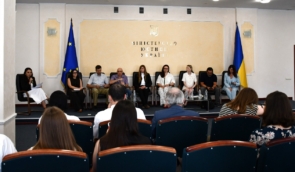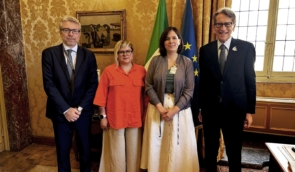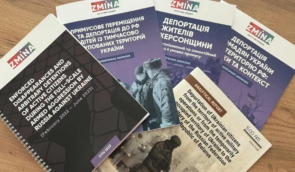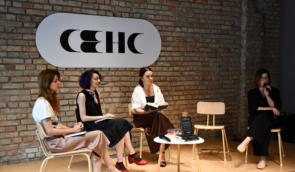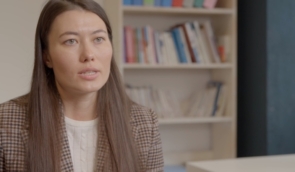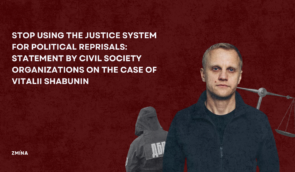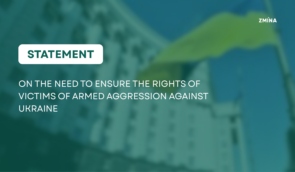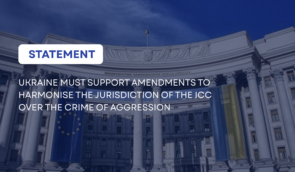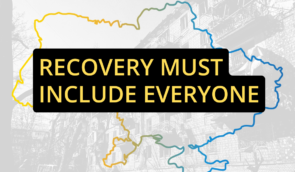ZMINA joined Peace Formula Working Group 4 meeting
On April 12, the Working Group of Clause 4 of the Peace Formula met in the Office of the Ombudsman of Ukraine. The meeting was attended by 30 countries and 4 representatives of international organizations: UN, OSCE, ICRC and EU. Civil society also joined the meeting, in particular the Advocacy Director of ZMINA Alena Lunova.
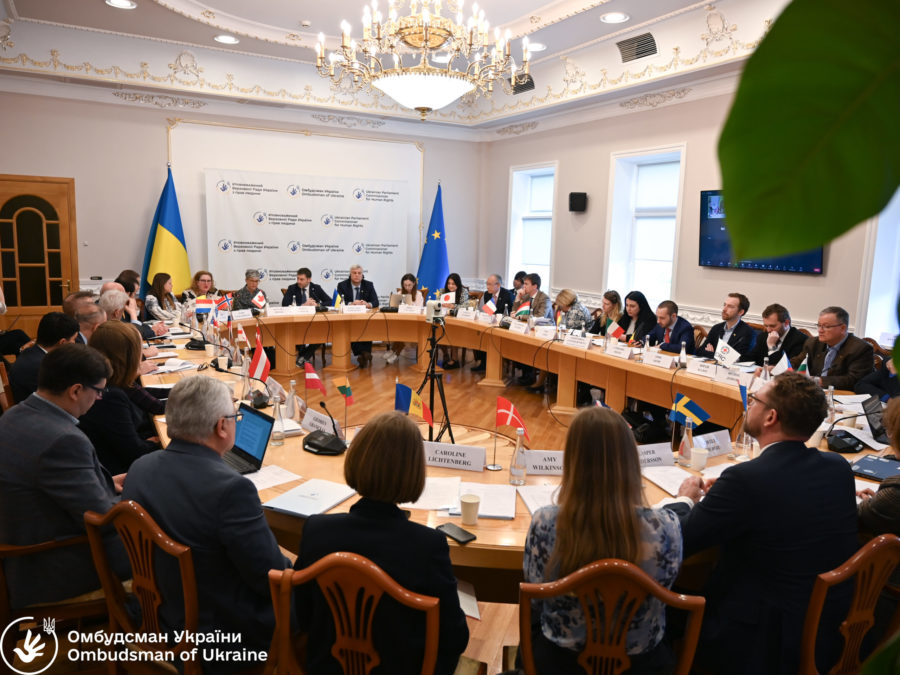 Photo credits: Ombudsman of Ukraine
Photo credits: Ombudsman of UkraineParticipants discussed the 4th clause of the Ukraine’s Peace Formula: release of prisoners and deported persons. As the Ombudsman of Ukraine Dmytro Lubinets noted, Ukrainain and international society takes all possible steps and looks for new mechanisms to return Ukrainian people. The Commissioner expressed hope that each member of the Working Group will contribute to it. Dmytro Lubinets emphasized: “Without stopping for a moment, we are working towards the goal of returning all our people home.”
The topics of the domestic gaps in the return and rehabilitation of civilian detainees and existing international mechanisms and platforms, in particular OSCE’s Moscow Mechanism and Global Peace Summit, were considered. Norway’s Ambassador to Ukraine Helene Andersen, Canada’s Ambassador to Ukraine Natalka Cmoc, Zmina’s Advocacy Director Alena Lunova, and Media Initiative’s for Human Rights Head of Documentation Anastasiya Pantielievieva joined the discussion.
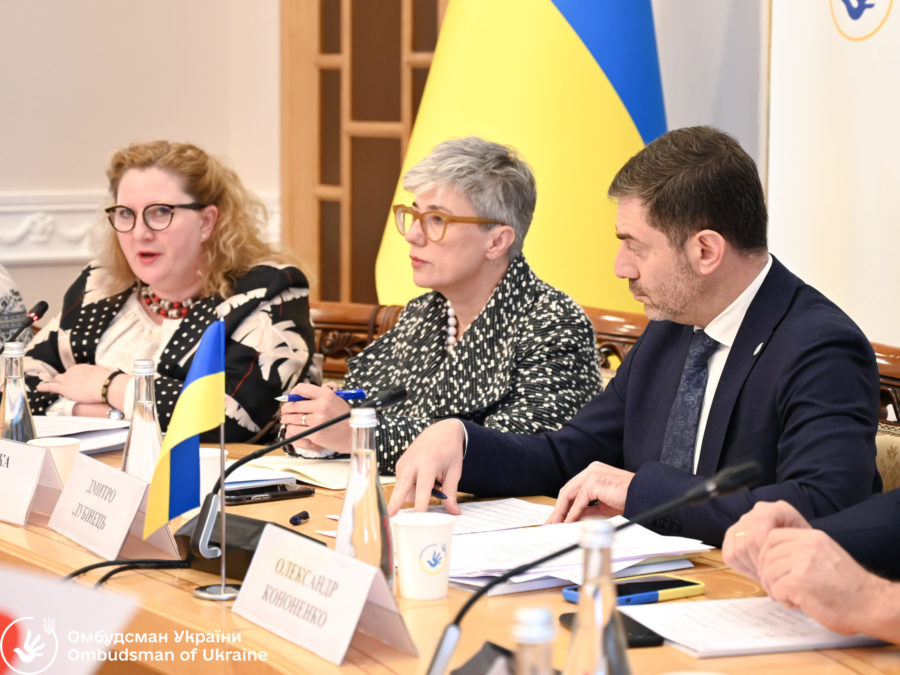 Photo credits: Ombudsman of Ukraine
Photo credits: Ombudsman of Ukraine“After the beginning of the armed aggression against Ukraine in 2014, the Russian Federation immediately began to use the practice of enforced disappearances and persecution of Ukrainian citizens who were not loyal to the occupation regime or expressed a pro-Ukrainian position. Thus, a new category of victims emerged – civilian hostages, which also includes persons persecuted for political or religious reasons in the temporarily occupied territories of Ukraine,” said Alena Lunova.
She told that in 2021, a special Law “On social and legal protection of persons in respect of whom the fact of deprivation of personal liberty as a result of armed aggression against Ukraine has been established, and members of their families” was adopted to support those deprived of their personal liberty due to the war. It is based on a Сommission which establishes the fact of deprivation of liberty as a result of armed aggression against Ukraine. Lunova explained the weakest point of the system:
- The burden on the commission has increased significantly (77 Ukrainian citizens were recognized as illegally deprived of their liberty as of 2018; in 2023, the Commission recognized the fact of imprisonment of 4337 people – 3574 military and 763 civilians);
- Non-transparency of the Commission’s activities, lack of understanding of how decisions are made to establish the fact of deprivation of liberty;
- Difficulties in proving the fact of deprivation liberty of civilian as a result of armed aggression against Ukraine and inability to confirm the place of detention;
- Lack of awareness on how to apply for establishing the fact of deprivation of liberty.
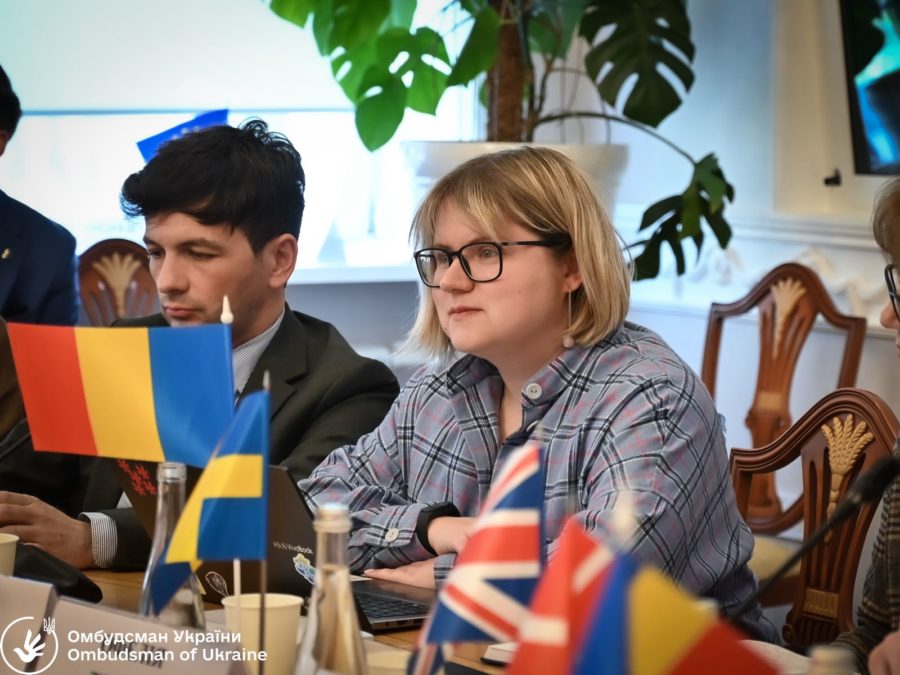 Alena Lunova. Photo credits: Ombudsman of Ukraine
Alena Lunova. Photo credits: Ombudsman of Ukraine“The Law provides various types of assistance for civilian detainees and their relatives but most of these types of assistance are not received by relatives because they either do not know about it,” added ZMINA’ Advocacy Director.
Also, she stressed that one of the key concerns is the issue of rehabilitation of former prisoners and the support that the state can provide them after their release. “Despite the small number of people released from captivity, the state should pay serious attention to this issue,” highlighted Alena Lunova.
Background: Peace Formula proposed by the Ukrainian President Volodymyr Zelenskyy at a summit of the Group of 20 (G20) is a way to restore just and long-lasting peace for Ukraine. It constitutes of 10 points, including radiation and nuclear safety, food and energy security, restoration of Ukraine’s territorial integrity, withdrawal of Russian troops, justice, prevention of ecocide, security architecture in the Euro-Atlantic space. Its 4th clause aims at the release of all prisoners and deportees and states: All of Ukrainian captives, including civilians, who are held in Russia and in the temporarily occupied territories of Ukraine, including Crimea must be released by complete exchange of prisoners of war, the release of all unlawfully detained persons and the return of all internees and of civilians forcibly transferred and deported, including children.”
If you have found a spelling error, please, notify us by selecting that text and pressing Ctrl+Enter.

